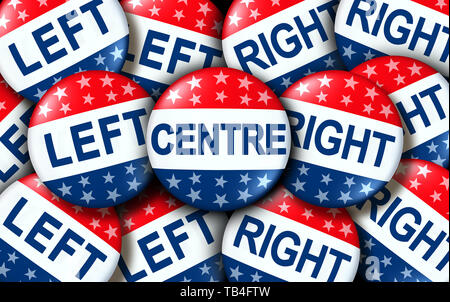Tribalism not only lives; it rules — even more than I thought! I’ve been reading Hyrum Lewis and Verlan Lewis’s book The Myth of Left and Right: How the Political Spectrum Misleads and Harms America. It’s certainly clarified my thinking.
The Lewis brothers are a historian and a political scientist. What they show is something that I and many others have only partly understood. But for me, that’s changing now. (Here’s an interview with them.)
Their thesis is that the terms left, right, liberal, progressive, conservative, Republican, and Democrat do not indicate opposing sides of a single basic ideological principle that would make their respective policy programs coherent. Instead, those labels identify two social/cultural tribes that are based on something other than ideology. The disparate components of their respective policy package deals change, depending on contingent events, but the tribes endure with few defections. Compare “right-wing” Republican leaders Robert Taft, Barry Goldwater, Ronald Reagan, and Donald Trump. You can do the same with the “left.”
What do those labels really mean? You can’t say, for example, that the left is for big government and the right is for small government: too many shifts and inconsistencies have occurred. Think of their changing attitudes toward free speech, foreign intervention, surveillance and the intel apparatus, free trade, the rule of law, and even tax cuts. Republicans have joined Democrats in opposing even future cuts to doomed Social Security and Medicare. Why don’t the media report that the Republicans have moved to the left on entitlements? Anything they do is called a move to the right; anything the Democrats do is a move to the left. How can that be?
Have you heard the cliche “This isn’t your father’s Republican [or Democratic] Party?” Tribal change is not new. (That was lifted from an Oldsmobile advertising slogan.)
When you come right down to it, members of Team Red hate members of Team Blue because they wear the wrong color jersey and vice versa.
The Lewises’ “social theory” explains the scene better than the prevailing “essentialist theory.” If the two tribes had ideologically driven platforms, each side’s members could coherently (but not necessarily correctly) say, “My team’s positions are all good because of our underlying vision, and the opposing team’s positions are therefore all bad. But if their lists of positions are grab bags determined by something other than a worldview, then the members can’t reasonably say that.
The authors ask us to imagine that supermarkets offered just two pre-loaded shopping carts to choose from. You’d pick the one that had more things you liked than disliked. But you wouldn’t say that every item in your basket manifests a consistent worldview and so is better than every item in the other one. But that’s how most people think of their political tribes.
Libertarians have more or less known this since the modern movement arose after World War II. As young libertarians, my friends and I wondered how so-called conservatives and so-called liberals could be pro-freedom in some ways and anti-freedom in others. Why weren’t they consistent?
We wondered how a political spectrum could make sense when it had totalitarian Josef Stalin at one extreme and totalitarian Adolf Hitler at the other. The authors ask a similar question: what use is a spectrum that puts Milton Friedman, a staunch advocate of individual liberty, the free market, and limited government, on the same side as Hitler, a staunch advocate of national socialism and the total state? Is a center-right person moderately pro-free market or moderately pro-Nazi? Is a center-left person moderately pro-welfare state or moderately pro-Bolshevik?
If the Lewises are correct, we should be wary about common phrases like moving further to the left/right or becoming more progressive/conservative. The reason is that there is no single-issue spectrum with fixed points to move along. The tribes define, not reflect, what it means to be rightwing, leftwing, conservative, and liberal/progressive.
If you have doubts about this, try stating the principles that unify the conservative and progressive programs or the party platforms. You can’t do it. If you ask a conservative or progressive what principle unifies his program, his answer, write the Lewises, will be a post-hoc rationalization. The tribes could exchange positions (and have) and still rationalize their new programs in terms of their previous answers.
This phenomenon need not apply to every group. Libertarians are united on a central principle — individual liberty — and their policy positions show it. (They sometimes argue about how to derive or apply the principle, but that’s a different matter.) Their policy preferences are predictable when we know that principle. Tribal policies are predictable because we know the color of the jerseys. What does support for abortion rights have to do with high taxes on the wealthy? What does opposition to abortion rights have to do with support for tariffs on Chinese goods?
How do people choose a tribe if not by principle? Lewis and Lewis say that a person’s choice can have a variety of sources: parents, friends, a single heartfelt issue (abortion, say), or a charismatic leader. But once he’s joined, his incentive is to embrace the whole package deal. Exceptions exist, but they are exceptions.
So enough with left and right, conservative and progressive (or liberal). Those labels obscure thought and fuel tribal antagonism. They are also harmful to libertarians who would benefit from public clarity. The only phrase I dislike more than conservatives and libertarians is libertarians and conservatives.

































